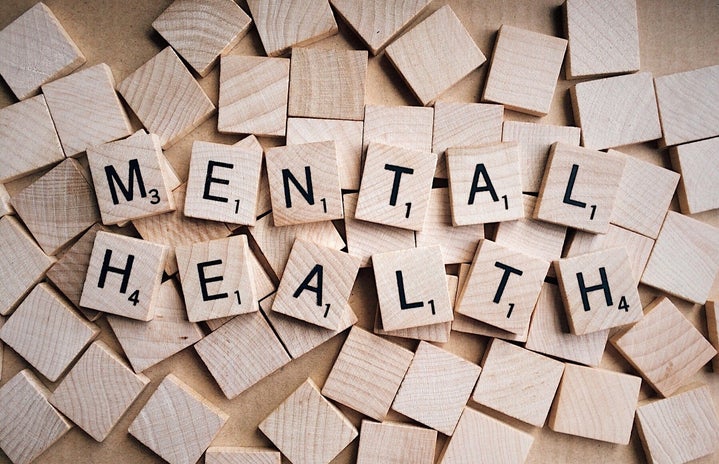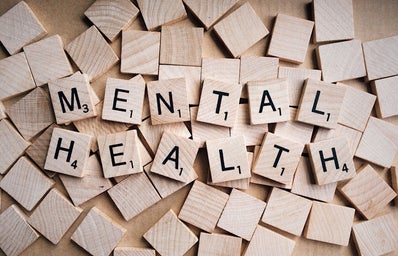It’s no secret that “therapy” is often thought of as a dirty word. According to Hopkins Medicine, about 1 in 4 Americans aged 18 and over “suffer from a diagnosable mental disorder in a given year,” yet, 55% of these adults didn’t receive mental health services in the previous year. According to the CDC, only 9.5% of Americans in 2019 “received counseling or therapy from a mental health professional.”
Of course, not every mental illness’ prescription is therapy or counseling, but the major mental illnesses include anxiety disorder and major depression disorder — both of which can be improved by therapy and counseling. A study done by JAMA Psychiatry in 2014 found that people who suffer from depression are “more likely to improve with a combination of therapy and medication, as opposed to just medication,” and according to the National Center for Biotechnology Information, anxiety disorders should be treated with some form of therapy or counseling. It is abundantly clear, therefore, that therapy needs to be prioritized by those with mental health issues.
But what about those who don’t have mental illnesses? The term “mental illness” often evokes the idea of something less common and more dire such as schizophrenia, which is why I hesitate to use the term “mental illness” to describe issues like anxiety and depression. I believe everyone experiences some level of at least one of them throughout life, regardless of whether or not said level meets the threshold in terms of diagnoses.
For simplicity’s sake, though, let’s remain consistent in labeling anxiety and depression as mental illnesses. So, what if someone hasn’t been diagnosed with either of these common mental illnesses? Does that mean one doesn’t need therapy?
The answer to that, is a resounding: NO. There’s a common misconception that one needs a “big reason” to go to therapy, but this isn’t true. Simone Scully, a journalist on health and science, wrote for Healthline about this very topic. People are often “most inclined to reach out to a therapist when they’re in crisis or during stressful life events,” Scully writes, “but the definition of ‘stressful life event’ is a little different for everyone. We all have unique triggers and life experiences.”
And even then, you still don’t need to be experiencing a “stressful life event” — whatever that may mean to you — to benefit from therapy. According to the APA (American Psychological Association), therapy “is effective, helps reduce the overall need for health services, and produces long-term health improvements.” And this applies to everyone, not just those affected by mental health issues. Besides, according to Dr. Gail Saltz — psychiatry professor at New York Presbyterian Hospital Weill-Cornell School of Medicine — getting ahead of any sort of mental health crises is possible and encouraged. “Therapy is exceedingly enhancing… It would be best for people to seek therapy long before the crisis occurs in their life so they would be better equipped to manage the inevitable crisis or difficulty of their lives,” says the doctor. In the same vein, licensed psychotherapist and founder of Urban Balance Joyce Marter urges people to schedule the appointment, affirming, “An ounce of prevention is worth a pound of cure.”
To some readers, this may seem like a no-brainer, because while it’s no secret that “therapy” has been a dirty word, it’s also no secret that the stigma around mental health and mental health treatment is lessening — at least in America. Among friends and acquaintances, phrases like “I was telling my therapist yesterday” and “When I was in therapy the other day” and “I can’t hang out tomorrow, I have therapy” are tossed around as frequently as and with the same comfort as we discuss the weather.
Why, then, am I still hearing about how some people don’t go to therapy?
Among my friends, a common reason for omitting therapy is that they “graduated.” But what does this notion mean, really? Recognizing the fact that mental health treatment—in this country—is not equally accessible to everyone, if one has the ability to go to therapy, there should not be any hesitation because, as established, you don’t need a “reason” to go.
The classic complaint against therapy is that it is for the weak, but this could not be further from the truth. Richard Taite, founder of Cliffside Malibu — a drug rehabilitation center — told Forbes writer Alice Walton, “Not only do successful people not fear therapy, they embrace it.” According to Taite, therapy “is a tool that creates success. Smart people use it.”
This is more of an issue among older adults, though. For us Gen Zers and the Millennials, it is understood that therapy is important. The complaints, though, end up being that it’s hard to find a therapist and there’s not enough time, contributing to the overarching issue that therapy can feel like a chore. To that I say, simply: it’s not. At its fundamental level, it’s just an opportunity to talk about yourself! What could be better than that?
For this reason — and many others — therapy will make you feel good, but you’ll also see the concrete effects for yourself. According to Marian Margulies, a New York City psychologist, the benefits of talk-therapy are long lasting. “Psychodynamic treatment is durable over the years. The positive gains continue and grow over time.”
Therapy also treats the physical effects of bottling up emotions. “When people do not express feelings but swallow them and keep them buried and out of conscious awareness, one’s body often reacts… Somatizing via stomach aches, headaches, sleeping problems, and ulcers are just some of the ways our body reacts to stress and psychic pain,” Margulies says. Going to therapy can relieve these issues.
Deciding to go to therapy doesn’t just affect the person in therapy, though. Therapy helps us understand ourselves better, and in doing so it also helps us understand others better. In Margulies’ work, she says that “people in psychoanalytically oriented therapy… come to see how they often make assumptions about what the other person intended. Then when they actually do a reality check by asking a friend what they were thinking when they said something, they are often surprised to hear they had a totally different take.” In going to therapy, we are able to declutter our minds and diminish the amount of often irrational and mistaken assumptions, making it easier to understand the actions, intentions, and motivations of others.
A big thing, though, is that by going to therapy, you won’t have to self-medicate anymore. When people hear the term “self-medication,” thoughts often go to alcoholism or drug abuse, but self-medication can be any form of coping. And even if your form of coping isn’t necessarily harmful in the same way as drug abuse or alcoholism, the point is that you aren’t dealing with the problem at hand, and that in and of itself is harmful.
So, why not go to therapy? At the least, it’s forty-five minutes of your time once a month or once a week, but the benefits extend far beyond the sessions.


